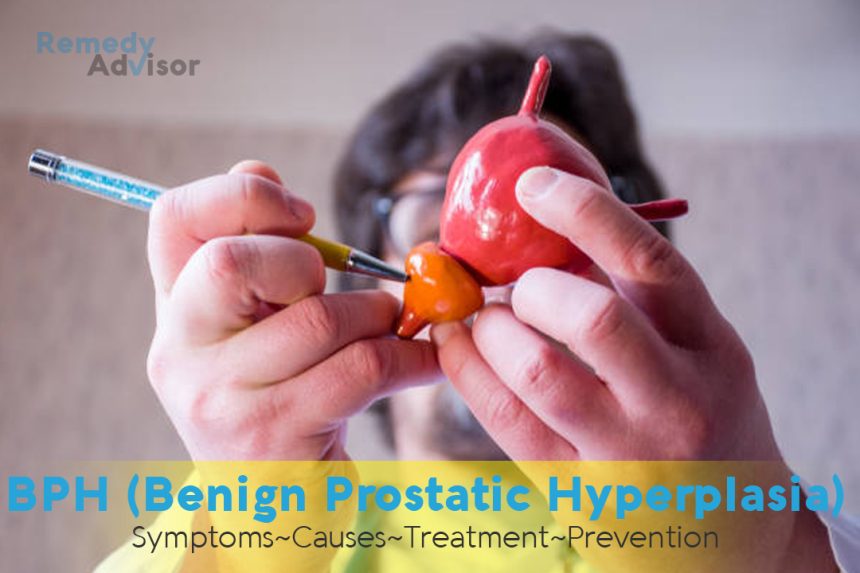What is it
BPH (benign prostatic hyperplasia) is an enlargement of the prostate that is common in men over 40 not just in this country but throughout the world. The prostate is a walnut size gland just below the bladder. It wraps around the urethra, the tube that carries urine from the bladder out through the penis. Normally, the prostate produces the seminal fluid that carries sperm outward during an ejaculation. If the gland enlarges, however, it can interfere with urination.
Many people fear that an enlarged prostate is a prelude to cancer, or is cancer, but this is not the case. Hyperplasia simply means an overgrowth of cells. Although BPH can cause unpleasant symptoms, such as the need to urinate frequently, it is not harmful in itself After age 60 more than half of all men have some degree of BPH.
BPH does not affect sexual function or the ability to have intercourse.
Symptoms
- In some cases, there are no symptoms.
- More urgent and frequent need to urinate.
- Awakening at night with the need to urinate.
- A stop-and-start flow of urine, or urinary dribbling after completing urination.
- A sensation that the bladder is not completely emptied.
- Urinary hesitancy (difficulty with starting to urinate).
What causes it
No one knows what causes BPH. Diet has no known connection with this condition, but heredity may be a factor in its development. Another theory is that BPH is caused by normal changes in hormone levels, especially a drop in testosterone. (Testosterone therapy, however, is not a safe or recognized treatment for BPH.) Still another theory is that a substance called dihydrotestosterone (DHT), produced by aging men, promotes cell growth.
What if you do nothing
Because urinary discomfort is largely subjective, how aggressively to deal with BPH is largely up to the patient. For men with mild symptoms, “watchful waiting” is usually the best course, since mild symptoms sometimes clear up or remain stable without treatment. Studies show that about 40 percent of men with mild symptoms improve without treatment, 45 percent continue with no change, and only 15 percent deteriorate. You should nonetheless get regular checkups to monitor the condition.
BPH requires treatment only if the symptoms are truly bothersome and begin to limit a man’s activities, or if the urinary tract is threatened. Sometimes urinary flow stops altogether, which is a life-threatening medical emergency.
Home remedies
The following lifestyle changes can help manage mild BPH. You can also try herbal remedies (see above). Keep in mind that you should have regular checkups if you have BPH.
Avoid certain Medicines
Evade tranquilizers, as well as over-the-counter cold remedies that consist of antihistamines and decongestants. These may deteriorate urinary signs.
Cut down on fluids in the evening
Especially, alcoholic beverages, to decrease the need to urinate during the night.
Go easy on caffeinated drinks
These have a diuretic effect. Diuretics don’t work and can be harmful.
Prevention
As of now, there are no measures known to prevent BPH.







